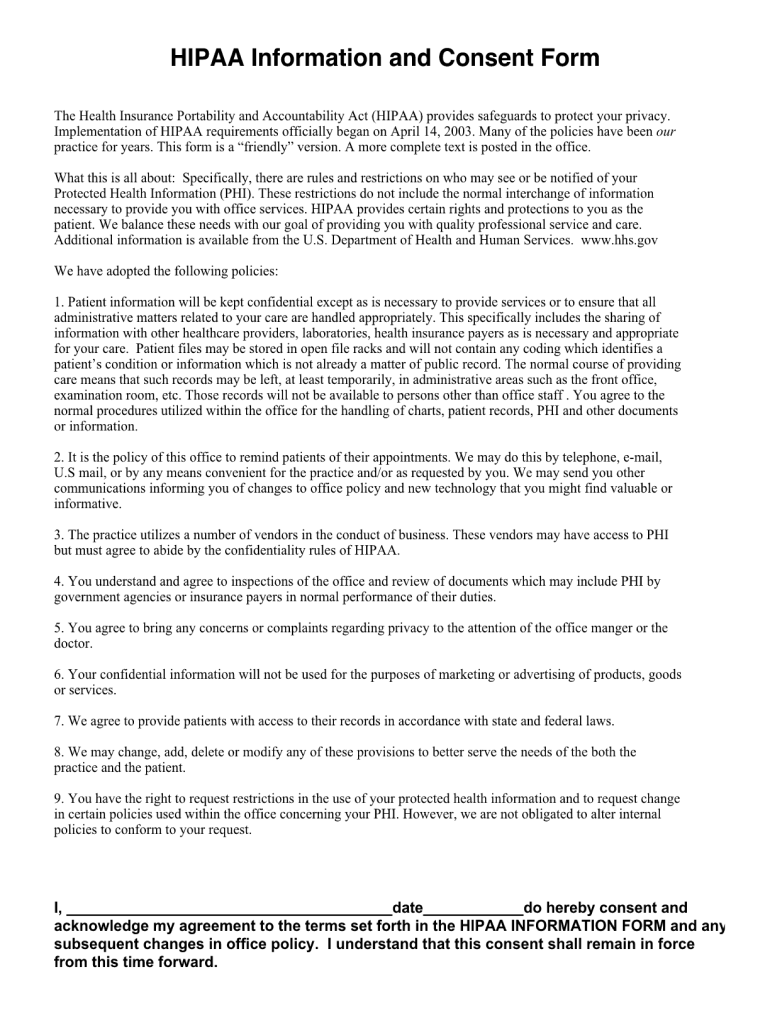When it comes to protecting patient privacy and ensuring confidentiality, healthcare providers must adhere to the Health Insurance Portability and Accountability Act (HIPAA) regulations. One way to ensure compliance with HIPAA is by having patients fill out specific forms that outline their rights and responsibilities regarding their protected health information.
Printable HIPAA forms for patients are essential tools that help healthcare providers communicate important information about privacy practices and patient rights. These forms are designed to inform patients about how their health information may be used and disclosed, as well as their rights to access and control their own medical records.
 Printable Hipaa Forms For Patients
Printable Hipaa Forms For Patients
Looking for a quick and reliable way to handle documents? A Form Printable is the perfect solution! Whether you’re managing office files, educational forms, or home paperwork, Printable Form help you stay organized without relying on apps.
Streamline Your Tasks with a Printables Form – Fast, Easy, and 100% Free
From employment forms to budget sheets and medical records, you can find free form printable online for almost any need. Just download, prepare, and fill them out by hand—no tools required.
By providing patients with printable HIPAA forms, healthcare providers can empower them to make informed decisions about their privacy and understand how their health information is being handled. These forms also serve as a legal document that patients can refer to if they have any concerns about their privacy rights being violated.
Furthermore, having patients fill out HIPAA forms helps healthcare providers demonstrate their commitment to protecting patient privacy and complying with HIPAA regulations. It also fosters trust and transparency in the patient-provider relationship, as patients can feel confident that their health information is being handled with care and respect.
In conclusion, printable HIPAA forms for patients play a crucial role in ensuring compliance with privacy regulations and maintaining patient confidentiality in healthcare settings. By providing patients with these forms, healthcare providers can empower them to take control of their health information and make informed decisions about their privacy rights.